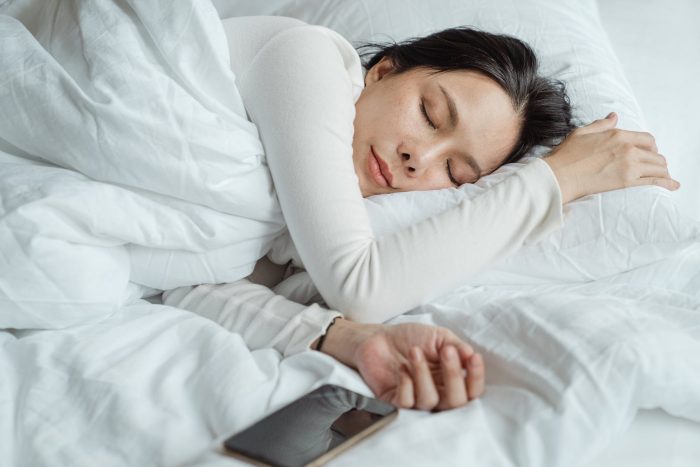When it comes to your overall health, it can be easy to fall down a rabbit hole and be overwhelmed by all of the things you need to consider including diet, exercise, drinking the right amount of water, avoiding addictive substances, socialization, and more. And while, maintaining a lifestyle around these things can be difficult at first, making the commitment to your health will lead to great results and will be easier than you think to stay consistent.
While these are some of the most talked about things when it comes to staying healthy, one thing that is commonly overlooked when it comes to your well-being and overall health is sleep.
Our days are filled with errands, work, social time, relaxation, and more – for many people, in order to fit all of these things into one day they will sacrifice some of their sleep. However, sacrificing sleep can be problematic due to the benefits that sleep provides for both mental and physical health, it is vital to your overall health and entire well-being.
Sleep not only lets you wake up feel rejuvenated and ready to take on the new day but allows the body to recharge and reset.
The simple fact of the matter is that people who are well-rested are in a better position than those who are operating on a couple of hours of sleep less – they will be more alert, have better reflexes, and be able to think more clearly.
More specifically, not having enough sleep will lead to reduced reasoning and problem-solving abilities, and a lack of attention to detail – people who are tired at work are generally less productive. It can also lead to an increased chance of traffic accidents and will have a large effect on your mood, including putting you at a greater risk of developing depression.
Unfortunately, research has shown that a lack of sleep can also encourage and reinforce unhealthy habits such as substance abuse. For example, stimulants like cocaine can impair and reduce sleep which, in turn, produces changes in the brain that reinforce continued drug use leading to a vicious cycle of lack of sleep and increased use of substances.
How Much Sleep Do You Need?
Now that we better understand the dangers of not getting enough sleep, what is the proper, recommended amount of sleep that one needs?
Everyone is different and their personal needs will be different as well but generally speaking, adults need about 7 to 8 hours of sleep every night while young children and teenagers need between 9 and 10 hours each night.
A good night’s sleep occurs when you get 4 to 5 sleep cycles in a single night, this will include periods of deep sleep and rapid-eye movement (REM) sleep.
Getting a Good Night’s Sleep
To help you get the proper amount of sleep, and not wake up constantly throughout the night, you can follow a few of these simple tips:
- Don’t Use Your Phone Before Bed– With how big technology has become it is not uncommon to spend multiple hours a day on your phone, television, or computer. Unfortunately, too much screen time before bed can inhibit your ability to fall asleep as it can keep your mind engaged and the blue light from your screen has actually been shown to inhibit melatonin.
- Avoid Alcohol – Many people tend to drink alcohol before bed, however, while doing this may help you fall asleep, it can cause major problems with staying asleep and getting the right amount of sleep. It is best to avoid using alcohol before bed in general. The same goes for caffeine. Caffeine found in soda, tea, and coffee is known to keep you awake and the mind stimulated which can greatly inhibit your ability to fall asleep.
- Create a Sleep Schedule – One thing you should try to do is be consistent with your sleep and wake times. If you are going to bed and waking up at around the same time every day and night, your body and mind will adjust to this schedule your body’s circadian rhythm will take over.
These are just a few of the tips that can help you deal with insomnia-related problems. However, you choose to do it, it is vital to improve your sleep patterns and establish healthy habits conducive with both physical and mental health.











Read 0 comments and reply